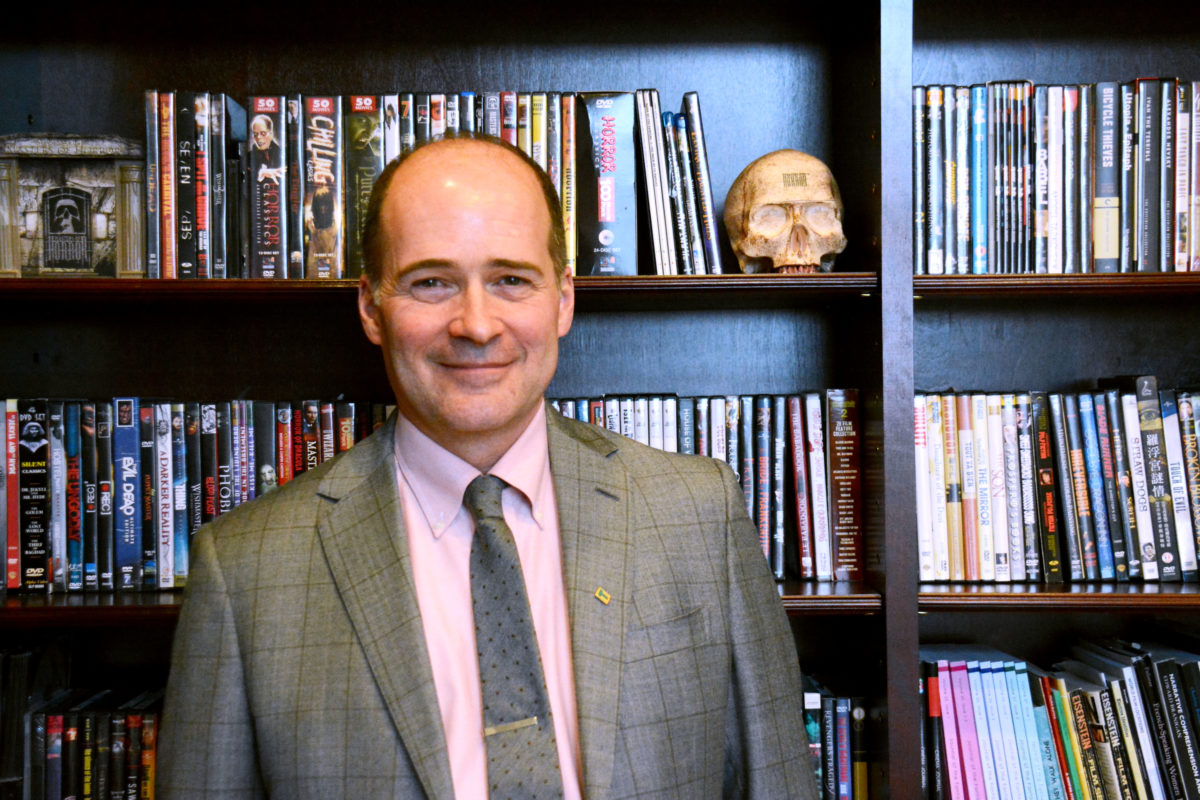André Loiselle said the position of dean of humanities at St. Thomas University is “absolutely perfect” for him, explaining that STU is one of the only universities that separates humanities and social sciences.
Holding four degrees from two universities, Loiselle said humanities is a world he knows well.
This is why he turned down the position of dean of the faculty of arts and social sciences at Carleton University.
During his time at Carleton, he watched the dean of the faculty of arts and social sciences struggle to interact with students due to the size of the university. According to Loiselle, there were about 300 professors and 5,000 students in the department alone.
“He tried very hard,” said Loiselle. “He was a very good dean but … there was just too much of the administrative side, there was just too much of the bureaucracy that constantly kept him busy.”
STU, however, has about 100 professors and 1,000 students studying humanities.
“I really thought I could do a good job and focus on a smaller university,” Loiselle said. “I could really have more of an impact.”
Loiselle feels liberal arts are a good stepping stone into other studies.
“That’s why liberal arts degree is so important. In my view, everyone should do a liberal arts degree and then they decide if they want to be an engineer or a doctor or a lawyer or an academic or a journalist. But everyone should go through these four years discovering what you like,” said Loiselle.
One thing Loiselle wants to do is make sure students know they should never hesitate to reach out to him if they need to.
“It might just be an idea that they want to share, or it might actually be a more serious issue, but I really want to … give a sense to the students that the dean is there for them.”
Loiselle says he and every professor at STU can relate to the difficulty level of university and he wants students to know the faculty is here for them.
“They got difficult for me, they got difficult for every single professor here when they were
undergraduate students, things get difficult,” said Loiselle.
While Loiselle is impressed with the “intellectual maturity” of the students, he also feels welcomed by the community.
“There’s quite a similarity between the culture in my hometown, Trois-Rivières,” Loiselle said. “There’s also sort of the Maritime personality, where people are just very open.”
Background in the arts
Loiselle’s received his first degree from, the Université du Québec à Montréal, in the Dramatic Arts, or theatre. After getting his degree there, he moved on to the University of British Columbia. He earned an undergraduate degree in film production then a master’s in theatre and film. Afterward, he completed his PhD in theatre and film, also at UBC.
“So I was in Vancouver for nine years, altogether to do all of those degrees,” said Loiselle.
But arts wasn’t always his beat. Before attending the UQAM, he was involved in the CEGEP program where he studied to become an engineer. He always did well in the science field, as was quite easy for him, but when he got to CEGEP, physics and chemistry became harder for him. Loiselle decided sciences weren’t for him and he went into arts.
Loiselle initially went into the program wanting to become an actor, but he said he wasn’t good at it and the style wasn’t for him. He wasn’t able to take all the rejections.
“I wanted to be a stage actor but also maybe a film actor, but either way it didn’t work,” said Loiselle.
Knowing it wasn’t a good fit for him, Loiselle took a role behind the camera and tried to make a movie. He did make one film, but it wasn’t good.
Still wanting to keep the relationship between theatre and film, Loiselle decided to follow a more academic career and wanted to teach the subject instead.
“So then I realize that, ‘OK, I’m not a good actor and I’m not a very good director either,’ so what I would be good at perhaps, was just looking at other people’s films and critique them,” he said.
Getting into the academics of theatre, Loiselle first worked at the University of Regina in 1995 as a film scholar, which led to film becoming his specialty. He transferred from Regina to Carleton in 1997.
Loiselle spent 20 years at Carleton. Ten of those years were spent in administrative business.
He was the director of the School for Studies in Art and Culture, the director of the School of Canadian Studies, the associate dean of Graduate Studies and assistant vice-president.
He liked the administrative side because it was one way he could make a direct impact. He believes it’s important for professors to run the university as opposed to bureaucrats and businessmen because they know how to run a university best.
Just beginning his five-year term, Loiselle hopes he can continue to work at STU for a long time.
“I love every minute of it. If everything goes as planned, I’m just going to stay here until they force me to retire.”

